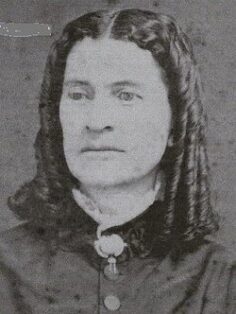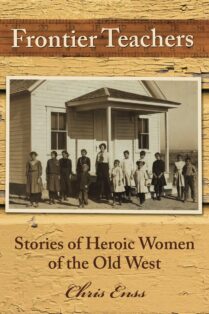Enter now to win a copy of
Frontier Teachers: Stories of Heroic Women of the Old West

Mary Graves Clarke, a dark-haired woman with a pale face and deep age lines marking her high cheekbones and small mouth, sat behind a wooden desk staring out a window that was slightly tinged around the edges with frost. The view of the distant snow-covered mountains that loomed over Huntington Lake in Tulare County held her attention for a long while.
The eleven students in the one-room schoolhouse where Mary taught pored over the books in their laps, quietly waiting for their teacher to address them. The pupils ranged in age from six to fifteen years. The majority of the class were girls, a few of whom couldn’t help themselves from whispering while casting worried glances at their distracted teacher. Finally, one of the children asked, “Mrs. Clarke, are you all right?” Mary slowly turned to the pupils and nodded. “I’m fine,” she assured them. “I was just remembering.”
According to the journal kept by one of Mary’s students, her “expression was one of sadness.” In spite of her melancholy spirit, she led the students through a series of lessons then dismissed them for recess. She followed them outside and for a moment was content simply to watch them play. A cool breeze drew her attention back to the mountains and drove her thoughts back to a time when she was a teenager, hopeful and happy.
If she had stayed in Indiana where she was born on November 1, 1826, she might have married the boy next door, taught students to read and write at a schoolhouse in her hometown, and lived out her days watching her children and grandchildren grow up on the family farm. Her life, however, took a different course when her family joined the Donner Party in 1846 and headed west.

To learn about Mary Graves and what she did to help save the survivors of the Donner Party read Frontier Teachers: Stories of Heroic Women of the Old West

